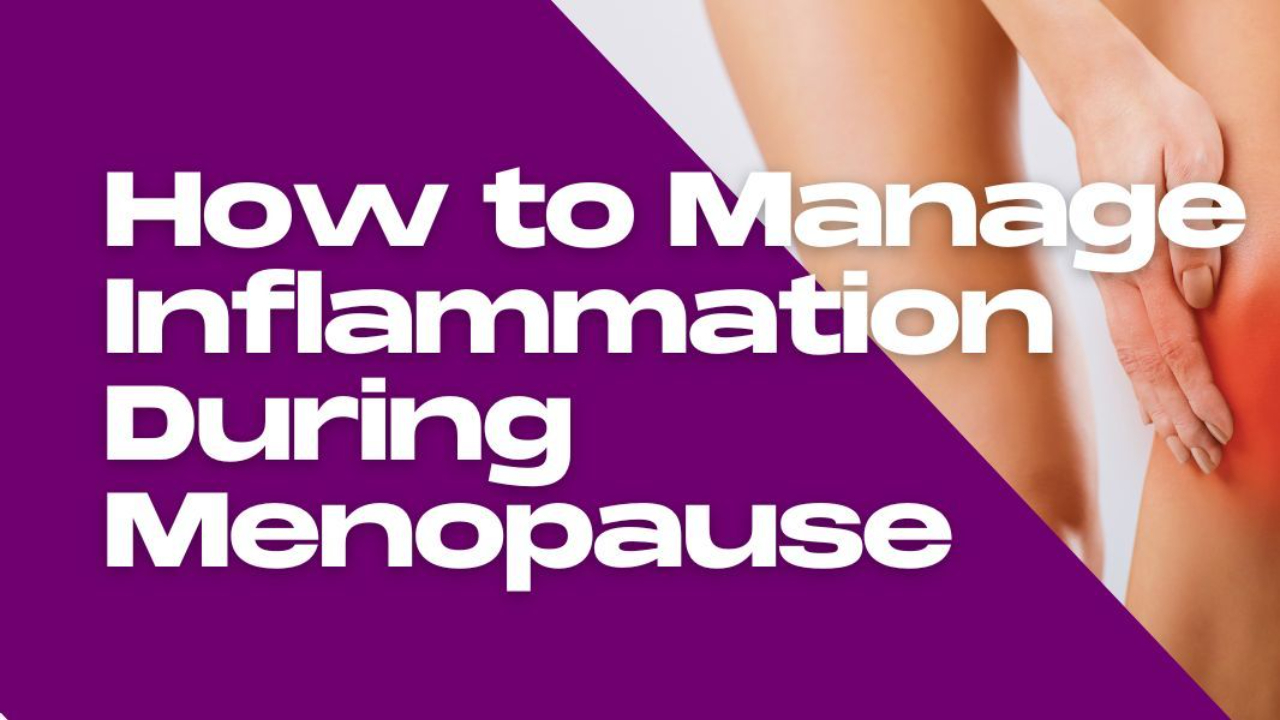
How to Manage Inflammation During Menopause
Sep 03, 2023Inflammation can rise with menopause, increasing our risk for chronic disease. These tips can help keep it in check.
By Selene Yeager
As estrogen declines during the menopause transition, inflammation in your body can rise. Unchecked, over time this systemic inflammation can damage our arteries, organs, and joints, increasing our risk for chronic disease like heart disease, arthritis, dementia, and other conditions.
Hormone therapy may help tamp down inflammation and inflammatory markers. You can also reduce systemic inflammation with the following diet, exercise, and lifestyle tips.
Eat an Anti-Inflammatory Diet
Some foods help control inflammation while others turn the dial higher. Emphasize fruits, vegetables, and foods rich in unsaturated fats like avocado, fatty fish, nuts, and olive oil. Popular diets like the Mediterranean and MIND diets (the MIND Diet is a hybrid between the MedDiet and Dietary Approach to Stop Hypertension, or DASH Diet) are known for their anti-inflammatory properties. Go easy on foods that contribute to inflammation in the body such as ultra-processed refined carbs, sugary beverages, processed meats, and fried foods.
Bonus: This type of diet is also good for your bones. A recent study analyzing data from the Study of Women's Health Across the Nation (SWAN) found that a more inflammatory diet consumed during pre- and early perimenopause is associated with more bone fractures starting in the menopause transition and continuing into postmenopause.
Rest, Recover & Destress
Hard exercise can increase inflammation as part of the natural adaptation process. Rest and recovery days help your body “deflame” and come back stronger. These easier days are especially important during and beyond the menopause transition when your baseline inflammation can already be elevated. The same holds for psychological stress, which, when unchecked, can cause additional inflammation. Go for an easy swim, take a walk in nature, practice restorative yoga, use your breathwork; whatever helps your body and mind chill out will help bring down the inflammation.

Lift Weights
Keep strength training in your exercise routine rotation. (You’ve heard that from us a few times!) Research shows that long-term resistance training improves inflammation. A 2018 study on postmenopausal breast cancer survivors found that a progressive resistance training program lowered inflammation levels and was associated with reductions in fatigue (as well as improved strength). Just remember to give yourself those recovery days to get the full benefits.
Get Feisty 40+ in Your Inbox
We hate SPAM. We will never sell your information, for any reason or send you emails that suck!


